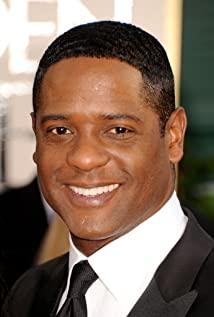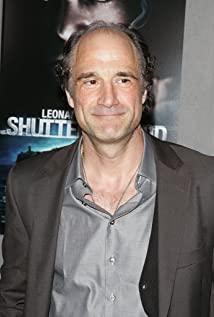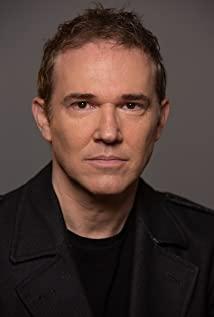"Gone Call" constructs a utopia ruled by big data and genetic technology, where people are told at birth about their future diseases and life expectancy; one's job and class are almost entirely determined by genetics; artificial insemination , genetic testing and other genetic technologies will replace the natural reproductive process. Everyone can easily see the evil of this utopia: since the status of man is determined entirely by genetics, the class of man will be predetermined and impossible to change from birth, then the inequality between people will be completely irrelevant. Disguised as the rules of society, and unless all people are genetically the same, this situation will not change in any way; at the same time, because human destiny is predestined by genes from the beginning, human free will has no effect, squeezed into extremely tight corners. In such a utopia, people are neither equal nor free. How to get out of the predicament brought by this utopia? One way would be to make all of them genetically "perfect", and the equality problem would be solved, but would fall into an even more absurd situation, where if all were printed in the mold of "God", then all would be perfect , but all the people are the same, then society would be a no-fun pool game, since every ball on the table is the same color, so it would be pointless to talk about which ball went in. Or completely abandon life sciences and computers, such an anti-intellectual concept will also make the operation of history nihilistic, which obviously should not be what science fiction movies should talk about. The movie chooses a solution that is not smart, and uses acquired efforts to make up for the congenital defects. Although high-quality genes are directly linked to the elite class, when high-quality genes cannot be transformed into high-quality productivity, such as when disabled due to misfortune, his social status will not be recognized. Therefore, high-quality genes and high-quality productivity constitute elites A necessary and sufficient condition for class. So, if inferior genes can produce superior productivity, can this utopia constructed by genetic determinism be broken? The film is actually based on this idea. In order to continue their identity and class, people with high-quality genes will hire people with low-quality genes as stand-ins. The movie calls this behavior "hitchhiking". The protagonist of the film is a person with inferior genes. Through his own efforts and medical technology, he has overcome the constraints of high myopia, height defects and heart disease, so that he has the ability no less than high-quality genes, and is competent for the work of the elite. He even escaped every genetic check, and finally fulfilled his space dream. At first glance, this assumption is natural. Since the innate factors are determined and cannot be changed, only the acquired factors of personal will can be changed. so if after Tian can have the same or even better ability than high-quality genes through redoubled efforts, so genetic determinism is untenable? Then high-quality genes should not be equated with elites, and genes and status are not the same. By inflating the role of personal will, people with different genes have the possibility of equality.
To criticize this idea, one need only refer to another text—the story of Hua Mulan. The text that is closest to "The Last Call" is not Zhang Yimou's "Shadow", but the story of Hua Mulan. A woman in a patriarchal society, by disguising herself as a man, assumes the duties of a man (joining the army) and norms as a man without revealing her footing. To point out the absurdity of the assumptions in "Closer", one need only ask, is Mulan's story an ideal model for feminism? Is making women Mulan the only way to practice feminism? Can the equality of women and men be achieved only through women taking on men's obligations and responsibilities? Obviously not so. Mulan can only achieve equality with men by disguising herself as a man and unreservedly accepting the code of conduct of the male community. This is not a challenge to a male-dominated society, but a submission to male-dominance. The danger of this text is that it ostensibly achieves equality between men and women, but it actually denies the possibility of a feminist narrative—if the celebration of women can only be written in terms of masculinity, then the discourse of femininity The rights will be completely deprived, and women will fall into a state of complete aphasia. Moreover, if the genetic difference between women and men determines that women have a gap in strength and physical strength with men, then making women take on men's obligations with men's standards will not only not eliminate this gap, but amplify it. This kind of inequality is reinforced - women can only make up for the innate gap through acquired training, which is actually an admission that women are inherently inferior to men, and that women's rights and social status are not as good as men's, and it will become a matter of course. . Dai Jinhua wrote in "Gender and Narrative: Women in Contemporary Chinese Cinema": "Women have lost their spiritual gender while breaking free from the shackles of history. Women, women's discourse and women's self-narrative and inquiry, due to the mainstream consciousness The disappearance of gender differences in morphological discourse has become unnecessary and impossible. Between the suffering, robbed, and humiliated old women and the quasi-male warriors and heroes, these two mainstream ideological mirrors, the "new women" The “liberated woman” is lost in a gap and moment in history.” The refutation of this narrative is obvious. Women may have innate differences in strength and physical fitness from men, but this can be used to prove the difference between men and women. Is it inherently unequal? This is not the case. There is no need to mention the relative advantages of women in terms of thinking and sensibility. It is only necessary to ask why masculine traits such as strong strength and physical fitness are considered advantages? This masculine advantage is based on the social division of labor system, and masculinity is considered to be more suitable for war and labor, but in modern society In the division of labor system, this difference is diluted. Is masculinity really a better quality than femininity? I think, which is better and which is worse is a false proposition. Difference itself is worthy of respect, because innate and genetic differences are inherently no better or worse. As Dai Jinhua said in an interview, "I have always hoped that the accumulated history of women's life experience could become another resource, a completely different force in the face of modern civilization dominated by men, in order to give We open up possibilities. I want to remind everyone that the imagination doesn’t have to be one-dimensional, it should have more paths and more open spaces.”
Now back to The Closest. The cunning thing about "Closer" is that it presupposes a premise: genetic difference equals genetic inequality. He tells you that some genes are better than others. For example, good eyesight genes are better than myopia genes, tall people are better than short genes, healthy genes are better than diseased genes. Because some genes are better than others, people have to choose good genes and discard bad genes, so people with good genes and people with bad genes are not equal. This statement seems to be innocuous, but in fact it is very suspicious. Let’s not talk about complex biological issues such as polygenic traits and epigenomics, but first ask whether genes for health, respected traits (such as tall height, double eyelids) are better than other genes. Are disease genes just bad genes? A well-known counterargument is that patients with sickle cell anemia are less resilient than healthy people in general areas, but are more resilient than normal people in malaria-endemic regions such as Africa, because red blood cells in sickle cell anemia carry Oxygen capacity is not as good as normal red blood cells, but it is resistant to the growth and reproduction of malaria parasites. This example can illustrate that disease is relative, a disease in one region is likely to become a dominant trait in another region. In addition, the significance of disease to human society cannot be ignored. Without epilepsy, Dostoevsky's literary attainments could not have reached such a height. Without schizophrenia, Van Gogh would not have been able to complete his most important paintings. Without Asperger's, autism, there would not be so many geniuses (Einstein, Newton, etc.) to advance science and art. Not to mention, how many scientific and artistic achievements have been spawned because of the fear of disease. I say this not to say that humans should not fight disease, but to show that we need to be more cautious in the process of fighting disease. As Susan Sontag puts it, the militarized metaphor of disease is the most vicious metaphor of disease because it is bound to stigmatize the sick. Likewise, it is equally vicious to think that people with diseased genes are not equal to people with healthy genes, because it is an obvious moral slippery slope—from fear of disease to stigmatization of people with disease to fear of having disease The stigma of people with disease genes (people who will be diseased), which we need to avoid. Similarly, there is no distinction between good and bad characters. Take tall and short people as an example. Who doesn't love the Hobbit in "The Lord of the Rings"? Those who were once in power, such as Napoleon and Hitler, were also famously short men.
In fact, looking at a deeper level, behind the genetic inequality is actually a single evaluation standard. The very obvious point in the film is that this is a competitive society, and the hierarchy in the film is stepped, from the company's executives, astronauts, to the company's ordinary employees, to the company's bottom-level cleaners. Law enforcement, frequent genetic testing, and a work environment with no privacy allow power to permeate every corner, resembling Foucault's panoramic prison. Losing the ability to work and failing genetic standards can instantly drop people to the bottom of society. Such a competitive society obviously has a single evaluation system, that is, the level of work ability. Therefore, genes with higher working ability are considered to be high-quality genes, and genes that are not conducive to work are considered poor-quality genes. This is also why the two brothers in the film often compete in the sea to see who can swim farther when it is time to prove their abilities. Both of them accepted the unspoken rule of society - that they can only prove their ability through sports competition. This gives me a sense of absurdity no less than the "Doctor" in "Send Me to the Clouds" who carried pi in order to prove his ability, or the unique trick that two people who are going to duel come up with, but who is in the little bully. Score high. Therefore, the refutation of genetic inequality actually only needs to answer whether the social evaluation standard should be unified. As long as the social evaluation criteria are not single, genetic differences are meaningful. A biological counter-argument is that if social evaluation standards are single, then the development of technology will inevitably lead to single genes. And we know that all evolution comes from the diversification of genes. The reason why creatures on earth have not gone extinct is also because there are a variety of genes and species that can save the fire of life when various disasters come.
In fact, gender inequality and racial inequality are the same problems that need to be solved. Diversity of society and respect for individual differences are the fundamental solutions. We should not promote the Mulan-style gender narrative, let alone let black people bleach their skin, but should recognize the differences between genders and races, and respect and understand each individual. At the same time, in order to avoid a single evaluation standard, there should be a variety of voices and cultures in the society, not only one single ideological rule, but only one official voice in the whole society. We can see that when the voice of society is most unified, it is often when humanitarian tragedies such as genocide and war occur. The utopia I look forward to is one where everyone is no longer labeled as race, gender, or disease, where everyone can choose their own identity, hear the voices of others, and recognize and respect each other's differences. I am optimistic about the power of history, and I am optimistic about such a future. This is also my rebuttal to all unequal utopias.
View more about Gattaca reviews











